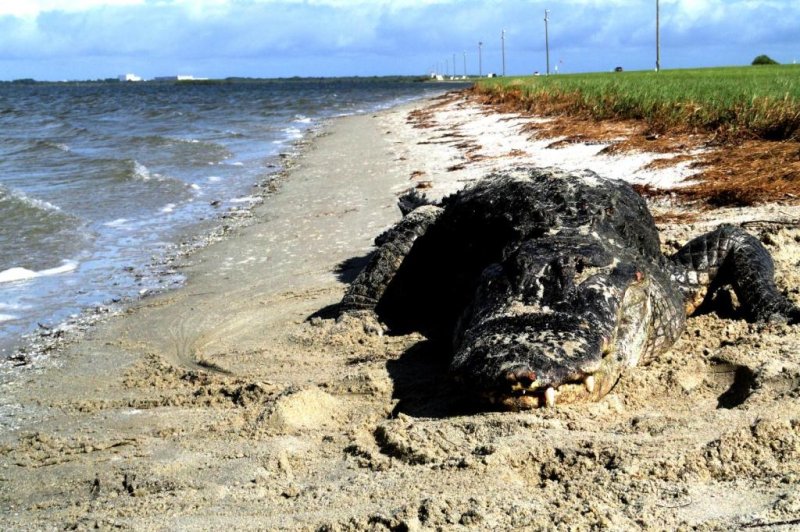An alligator is pictured lounging on the beach. Photo by Brian Silliman/Duke University
May 7 (UPI) -- Large predators are increasingly being spotted in places they're not traditionally found: killer whales in rivers, alligators on beaches and cougars far from the mountains.
It's been suggested hunger and lack of prey have pushed predators into strange habitats, but new research suggests these species are recolonizing habitats they've lived and hunted in for centuries -- before they were pushed to the brink of extinction by humans.
Finding large predators in new places isn't a sign of desperation, researchers argue, but evidence of rebounding populations.
"We can no longer chalk up a large alligator on a beach or coral reef as an aberrant sighting," Brian Silliman, a professor of marine conservation biology at Duke University's Nicholas School of the Environment, said in a news release. "It's not an outlier or short-term blip. It's the old norm, the way it used to be before we pushed these species onto their last legs in hard-to-reach refuges. Now, they are returning."
Silliman and his colleagues reviewed dozens of studies and population surveys and found many predators -- including alligators, sea otters, river otters, gray whales, gray wolfs, mountain lions, orangutans and bald eagles -- are now more abundant in so-called novel ecosystems than in traditional habitat.
"The assumption, widely reinforced in both the scientific and popular media, is that these animals live where they live because they are habitat specialists," Silliman said. "Alligators love swamps; sea otters do best in saltwater kelp forests; orangutans need undisturbed forests; marine mammals prefer polar waters."
However, these reputations were established while these species were in decline. Successful conservation efforts have helped several predator populations rebound. As a result, the species are demonstrating their adaptability.
Studies of alligators living in the ocean suggest marine species, including rays, sharks, shrimp, horseshoe crabs and manatees, account for 90 percent of the reptile's diet.
The new research, published Monday in the journal Current Biology, may force scientists to reconsider conservation strategies and priorities.















